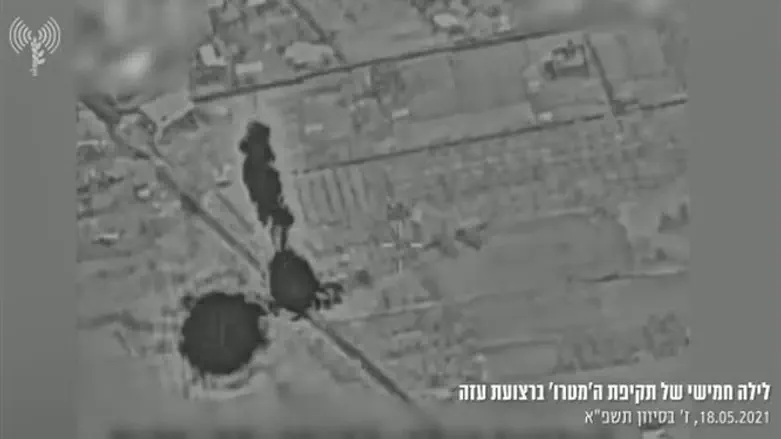
The current “Guardians of the Wall” campaign has elicited calls for a decisive victory, which would then act as a serious deterrent to further rocket and incendiary balloon attacks on Israel.
On the face of it, this makes sense. It’s clear that deterrence should replace the policy of conflict management/containment which not only has failed, but has empowered Hamas. As Israel comes under increasing pressure to implement yet another cease fire, Hamas will agree -for now- having lost the war with substantial infra-structural damage, dead terrorists and civilian suffering, yet claiming victory.
As in previous wars, they will soon violate the cease fire by relatively small provocations such as with the odd rocket and incendiary balloon attacks. Israel will then respond with a shrug and gesture of hitting an empty Hamas observation post.
In the western way of thinking, the damage that Hamas and Gaza has suffered would act as a deterrent. However the concept of deterrence has a cultural component which seemingly has not been taken into much consideration.
Decades ago, Osama bin Laden explained the Islamist way of thinking namely, “you love life, we love death,” which suggests that the more Hamas suffers losses, the more they and their followers believe that they have triumphed.
This paradoxical situation necessitates a review of what victory and deterrence actually mean in the Hamas (and their fellow travellers) context. Part of their sense of triumph includes reinforcing their victim status to a sympathetic international community as “humanitarian” aid starts pouring in from Arab and European countries. And so back to square one.
This does not mean that Israel must let up on displays of effective military prowess. On the contrary, Israel must demonstrate to observers, including adversaries like Iran and its allies, strategic partners like the Gulf States and regional allies such as Greece, that Israel is a formidable power that will not hesitate to act in its national sovereign interest.
However with the likes of Hamas, a decisive military victory must be a point of departure, not an end in itself. For a culture that glorifies death, martyrdom and populist spin, more needs to be done to achieve deterrence. Normal western type indicators of loss and a willingness to agree to genuine peace must go beyond being militarily overwhelmed. As previous conflicts have shown, these norms do not totally apply in conflicts with Hamas and other Islamist terror organizations.
The damage that Hamas and Gaza have suffered, has therefore become its “red badge of courage,” and will embolden it to be both victim and heroic martyr, claiming victory. This is not a recipe for deterrence but a recipe for planning the next conflict.
Israel should therefore make demands that circumvent Hamas spin, propaganda and the reframing of reality as a “victory.” The first demand would surely be that bombing Gaza and liquidating its leaders would not stop until Israel’s dead and live citizens held captive are released. Hamas would lose a key bargaining chip and loss of face as morale in Israel would be boosted. Further appropriate demands and measures over and above military actions would follow.
In this way, deterrence based on cultural factors such as humiliation and helplessness could be more effective and curtail the emboldened confidence that Hamas portrays. Deterrence to be effective, therefore needs to be fine-tuned so that it addresses cultural factors including Hamas delusions of grandeur, misplaced spin of martyrdom and victory.
Israel wins battles but usually loses the PR and psychological wars. Demanding the return of Israelis kept hostage in Gaza as part of any ceasefire deal would be a step in the right direction.
Ron Jontof-Hutter is the author of The Trombone Man: Tales of a Misogynist; the play BEST; and Kristallnacht Cantata: a voice of courage.
